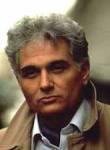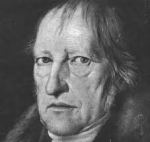-
Recent Posts
- How Russians protested in August 1968 when Soviet Russia invaded Czechoslovakia
- Street Life and Morals — an interview with Lesley Chamberlain
- When I shook Gorbachev’s hand
- On a Novel by John Barth and a harrowing illegal abortion scene: think again ‘pro-lifers’!
- Ghislaine Maxwell: J’ACCUSE!
- Russia as a Eurasian Power — the history
- Russia in my lifetime : a tragic story Central Moscow in April 1992 was a jumble sale. Trestle tables obstructed the pavements, old counterpanes covered them. Mostly older people, mostly women, displayed trinkets for sale: a cup, a few beads, a spare tin. Outside the Bolshoi Theatre sheet music – bound conductors’ scores even– waited for a chance buyer. They were like cultural treasure turned out of safe-keeping by a marauding army. Over in Sokolniki park at the Sunday market Red Army uniforms were going for a song. The entire Soviet past was ridiculed. It made me feel uncomfortable. I cast my mind back twenty years earlier to my first contact with Communist Russia, when a planeload of young Western visitors who should have known better applauded when we took off for home again. Mostly they didn’t like the food. In Nizhny Novgorod I knew a woman who had been an Intourist travel guide. She knew her lines by heart. ‘You tell the visitor so much they don’t need to ask questions. Isn’t that right, Lesley?’ Galya had a nervous breakdown when both her technique and her beloved knowledge of Soviet history and culture were made redundant overnight. The Cold War, and its end, were a painful business.
- The Old Men at the Zoo: Novelist Angus Wilson (1913-1991) on the Riot of post-war Britain
- A Meeting with Isaiah Berlin and a few reflections on his quarrel with Roger Scruton
- A Meeting with Isaiah Berlin and a few reflections on his quarrel with Roger Scruton
- From Weimar to Washington: The Collapse of the House of Bourgeois Ideas – Part 1
- How Tolstoy named an adulterer — the great writer 110 years on
- The Crown The Making of A National Epic
- The Agonies of George Steiner
- Roger Scruton – A Personal Memoir
- A giant step, but for whom?
- Le Carre’s Agent in a New Field
- A European View of Jeremy Corbyn
- Letter to Nietzsche
- Van Gogh in Kent: the inspiration he took forward from his days in England
Archives
- August 2023
- October 2022
- September 2022
- July 2022
- April 2022
- March 2022
- November 2021
- August 2021
- January 2021
- November 2020
- February 2020
- January 2020
- December 2019
- November 2019
- March 2019
- February 2019
- August 2018
- July 2018
- March 2018
- November 2017
- September 2017
- August 2017
- May 2017
- April 2017
- March 2017
- February 2017
- July 2016
- June 2016
- April 2016
- February 2016
- January 2016
- December 2015
- October 2015
- September 2015
- August 2015
- June 2015
- May 2015
- April 2015
- March 2015
- February 2015
- January 2015
- December 2014
- November 2014
- October 2014
- September 2014
- May 2014
- April 2014
- March 2014
- February 2014
- December 2013
- September 2013
- June 2013
- May 2013
- February 2013
- January 2013
- December 2012
- November 2012
- September 2012
Categories
- 2019 election
- A Shoe Story
- A Shoe Story – my next book
- American literature
- Anyone's Game – my latest novel
- Arc of Utopia – my latest book
- Art History
- autobiography
- Brexit
- Britain Today
- British politics
- Cold War
- Current Affairs
- english literature
- Europe
- existentialism
- Film
- Food
- Frankfurt School
- French intellectuals
- French literature
- German Literature
- German press
- Girl in a Garden- my first novel
- History of Bourgeois Experience
- In the Communist Mirror
- In The Communist Mirror – my book 25 years old this year
- Iris Murdoch
- Literature in Translation
- Ministry of Darkness How Sergei Uvarov Created Conservative Modern Russia
- Music
- New York Intellectuals
- Nietzsche in Turin
- novels
- Philosophy and Philosophers
- postmodernism
- Pushkin
- Russia
- Russian Conservatism
- Russian Revolution 1917
- Street Life and Morals
- The Secret Artist A Close Reading of Sigmund Freud
- Theatre
- Things German
- Uncategorized
- Van Gogh in England
- which I published in 1990
- Who are you?
- Writing
-
Join 178 other subscribers
Derrida: A very short defence
This entry was posted in A Shoe Story, Europe, Philosophy and Philosophers and tagged A Shoe Story Van Gogh The Philosophers and the West, Criticism, Derrida, Hegel, Marx, philosophy. Bookmark the permalink.




Pingback: The Seventh Function of Language | Lesley Chamberlain